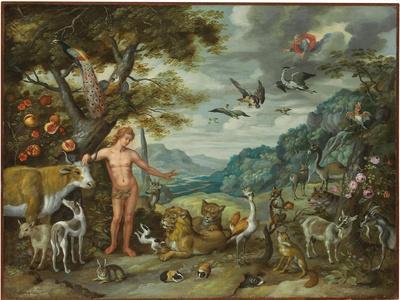“It would be like Adam after the garden; he had no notebooks.” -Kwame Dawes
Fremont, NE. The names that we call ourselves tell us who we are. We might call ourselves Republicans, Democrats, conservatives, liberals, Nebraskans, Brooklynites, or whatever. Each of these is a descriptor of some facet of our identities, which is all well and good, but if we mistake these adjectives for proper nouns, trouble comes in. If one of these aspects about me is taken to be the core of my identity, I must defend it all costs. If it is attacked, I am attacked; if it is lost, I too am lost. When we elevate adjectives to nouns, it becomes impossible to relate to one another, to learn and to grow together.
Two recent books about Nebraska deal with this concern about names and identities in very distinct ways. The first, Rural Rebellion, by Ross Benes, is a journalistic examination of the changing politics of the rural parts of the state from the perspective of a native son who now lives in Brooklyn. The second, Nebraska, is a cycle of poems by a Ghanaian-born poet who now teaches at the University of Nebraska-Lincoln, named Kwame Dawes. Taken together, these two books address the identity crisis of our time, a crisis that worsens when we forget the true names of things, of ourselves, and perhaps even the names, as Dawes puts it, of God.
Benes’s book is an admirable effort at reconciliation. He is from a small town in rural Nebraska called Brainard, a place with about 400 people, but he now lives among the journalist set in Brooklyn. Unlike other ‘escapees,’ Benes does not frown upon Brainard as benighted, but sees it as having different insights and limitations to Brooklyn’s. Speaking of New York City, he admits that he has “always been ambivalent about the place, and think[s] often about leaving it,” a fact which gives great surprise to his East Coast friends.
Benes has the clarity of vision to see that Brooklyn is not some paradise of rationality and progress as compared with little Brainard. Both places, rather, shape the identity of those who live within them in imperfect ways. “I can’t help but feel that many of my New York friends,” he writes, “would be conservatives if they spent their whole lives in Nebraska towns. On the flip side, I think my conservative high school friends would become more liberal if they spent a few years in New York City.”
Why, then, the enmity between the two groups? Both have their particular insights. Benes points out that small towns recognize the importance of thick communal bonds, of neighbor helping neighbor, and of the great responsibility that brings. That’s part of the reason they tend to be skeptical of welfare and entitlements. Big cities, however, see many folks on the streets not taken care of by any neighbor, and residents are therefore more prone to be sympathetic to government assistance.
These are genuine insights based on differing experiences, but not all of the differences between Brainard and Brooklyn are so well motivated. The trouble comes in when people of either place begin to attach their experiences to political signifiers and culture war wedges. In this, both sides are to blame, and both are taken advantage of by political campaigns, which have an interest in catastrophizing everything, and in painting those who disagree as enemies of the republic.
This cycle of enmity perpetuates itself, leading us to separate our social worlds from those who do not think like us. “Like so many others from small towns,” Benes writes, “I left the state after college. People in my position are becoming less likely to be present at the local bar to provide our viewpoint when bad news about the university comes up. Parents, already mad that few young people come back to support their shrinking towns and that they’re paying a lot more tuition to get their children a shot at entry-level jobs than they did a generation ago, fill the information void.” Likewise, in Brooklyn, there is no family-man farmer at the speakeasy or art gallery to voice his own particular concerns and insights.
Absent flesh-and-blood embodiments of differing opinions, we are apt to reduce the people who hold them to abstractions–simpler and easier to hate than any real human being. If we are together, face-to-face, sharing life as neighbors and friends, we are more likely to find that our important identity lies in our being humans who share a place and a life together, and not in different opinions about the ideal public policies. Those differences matter, and they need to be hashed out, but they need to be hashed out in a broader context of belonging, a context in which our very identities do not seem to be at stake.
As an illustration of this fact, Benes describes the result of his move to Brooklyn: “Instead of being a left-of-center kid in Nebraska, where I’d respectfully disagree with my conservative friends over a few Bud Lights as we called into question each other’s assumptions, I became just another moderately liberal young guy living in New York City who hung out with people who shared many of the same beliefs.”
Benes’s book is a quick and enjoyable read, written with a light touch, in a journalistic style, sometimes taking advantage of midwesternisms to assure readers that he’s the real deal. In places, Benes gets into the minutiae of Nebraskan politics that may appeal mostly to Nebraskans or politicos, but most of the story he relates will be of broader interest. The book is broadly generous in its assessments of people with varying political viewpoints. In its pages, we meet Kellen, Ross’ brother, who is described as extremely intelligent and definitely conservative. The viewpoints of small-town folks are approached with a mixture of gentle skepticism and true admiration. We also learn of those parts of the progressive worldview which have shaped, but not totally re-shaped, the author (who still considers himself, for instance, pro-life in some way).
In Nebraska, the cycle of poems from Kwame Dawes, we find not the experience of one who left, but of one who settled in this state from afar. Dawes came to the state by way of Ghana and Jamaica. These poems are somber, melancholic, thoughtful, and sad. Dawes is intent on the juxtaposition between the grittiness of flesh, of aging, of illness, of weight, and the stark and spare beauty of the great plains. In both the mundane features of Lincoln, Nebraska’s capital city, and of the surrounding farm country, he finds room to explore what it means to be a Ghanaian-Jamaican planted in prairie soil. Although they are often gloomy, these poems are also beautiful, and they invite much reflection. Midwesterners, especially, would profit from reading them.
The poems are divided by seasons of the year, and we see Dawes and the state move through time together. An early piece is titled “The Immigrant Contemplates Death”:
This is what I can say of exile;
A body like me has lost track
Of the narrative of mortality:
It is the brittle dry air
Of these prairies, the wide-open
Fields, the soil that has
Grown too hard for burial.
As Dawes considers the way in which his own body ages in this strange and cold place, he imagines himself back on the soft soils of Jamaica. In a later poem, he writes of walking in the rain, with his “heart in gross repose dreaming of Accra [Ghana’s capital city] and that unwritten sweetness I hold within me.” The juxtaposition of the hard Nebraska soil in winter, and the soft, sweet soil and weather of the places where he grew up is a powerful one because the soils that nourish us make us who we are. Here again, we encounter the question of identity. In Nebraska, Dawes sees a land insecure about its identity, and perhaps not entirely able to incorporate his own. But attachment to the soil, soft or hard, planted or transplanted, is at least an identify more meaningful than mere political labels.
The danger in soil, of course, is that we can make it an idol too—something to be brandished against other soils. This is what causes us to say, as Dawes puts it, “We are the ones / we are the true people, we the people, we the people!” These words, he says, echo behind “every destruction of history.”
Such a world, where we attach our identities to group labels that exclude our neighbors, is a fallen world. In the garden of Eden, as Dawes portrays it, the creatures danced around us as we gave them their proper names. Now, we no longer remember the true names of things, and, as result:
It grows dark quickly here,
And God no longer strolls the gardens, calling out
The names of things with delight:
Not even the damp clump of a name
To forget our true names, the ones that God calls us, if you will, is to be cast into outer darkness, to be exiled from our memories of who we ought to be. Put another way: when we forget that we are brothers and sisters, each with our own dignity, we invite enmity in the place of fellowship.
I see both books, in the end, as a call for us to remember the real names of things, that is, to recall their real identities. The most important identities, across political lines, are defined by what we hold in common as a human family and the places where we make our homes.
We are human beings, each of us unique and belonging to a unique and beloved place. In the commonality of what we are, we find an identity strong enough to bind us together as friends despite our differences. In one of my favorite lines from the collection, Dawes writes that “we are all natives of some acre of the earth—where the honey is gentle on our skins, and the air is familiar as ritual.” Perhaps there is a positive way to think about soil, recognizing that, while our soils differ, each of us remains a planted thing. Obviously, our histories are complex. We can be transplanted, uprooted, or blown around like a tumbleweed, and these things are not always in our control. But each of us comes from somewhere, and within us there is a persistent desire for a place to put down roots, for a place to call home, and that is something we all share. We may be planted here or there, we may be moved from soil to soil, but we remain, always, planted in the Garden for a reason.






2 comments
Lee Yarrow
I love reading these and appreciate the different points of view…however…
“Benes points out that small towns recognize the importance of thick communal bonds, of neighbor helping neighbor, and of the great responsibility that brings.”
–Has Benes spent any time in minority neighborhoods of urban cities? This is not unique to small white towns.
The skepticism of welfare can be attributed to the fox news and talk radio onslaught. In 2021, 7 out of the top 10 states with the highest poverty rates are “red” states. So who actually cares and takes care of each other and who just talks about it?? IE: fighting public health mask mandates.
Furthermore, “liberals” or progressives understand the importance of national and global communal bonds, something current “republicans” either don’t understand or are too ignorant to consider with their current ME ME ME doctrine. It’s very hard at a time like this to think Left/Right are equal in their rationality and governing strategies.
Peter
‘Furthermore, “liberals” or progressives understand the importance of national and global communal bonds’
What is a ‘global communal bond’? I would have thought that precisely the point of this kind of very particular study is that a real bond can only be formed between real people and real places. As you say correctly, this can happen in an inner city as much as a small town. But it can’t happen ‘globally’, because ‘global’ is an abstraction. Even ‘nation’ is an abstraction in that sense.
At worst this leaves ‘progressives’ championing abstract notions like ‘global solidarity’ which come up directly against more conservative peoples’ notions of rooted community. That creates a gulf, which is then filled with fear or anger. ‘Mask mandates’ are a good example. If you don’t trust the distant people in the big citires enforcing mask wearing on shaky evidence – perhaps because they don’t seem to even like you – then the stage is set for conflict.
Comments are closed.